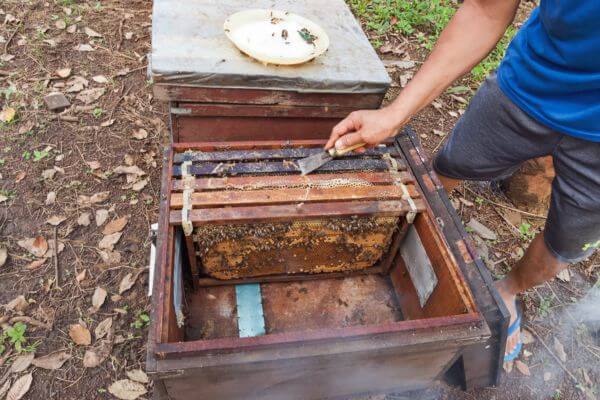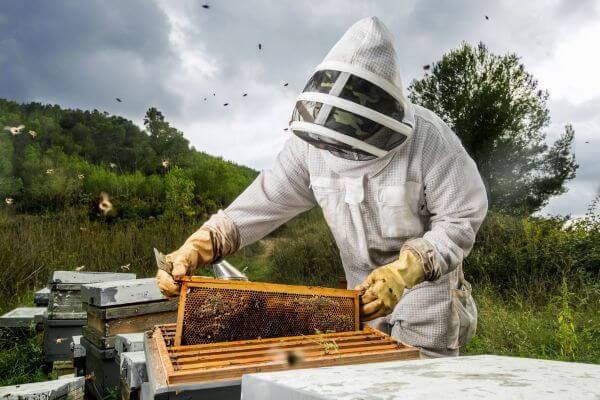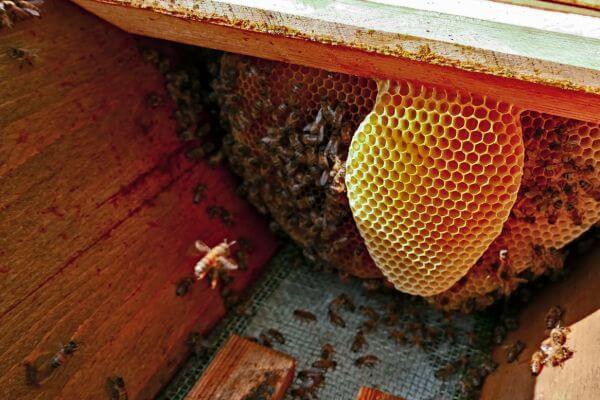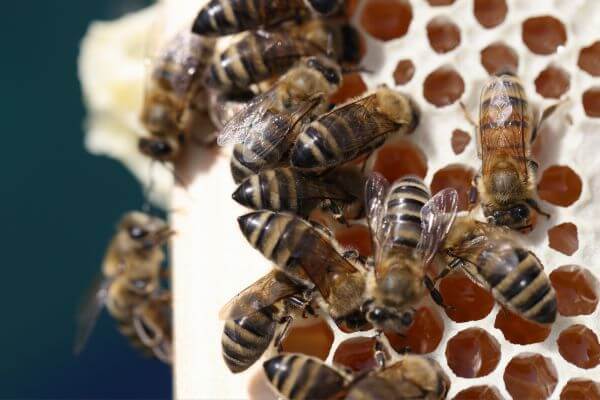Discover how to choose the best bee breeds and adopt sustainable practices in beekeeping. Learn about the challenges and opportunities for a greener future. Read on!
Bee Breeds for Beekeeping

When it comes to beekeeping, the choice of bee breed is crucial for the success of the venture. Different breeds exhibit specific characteristics that may better suit particular environments and production needs.
In the world of beekeeping, there is a variety of bee breeds, each with its own advantages and challenges. Understanding the differences between them is crucial to ensuring sustainable and efficient honey production.
Some breeds, such as the Apis mellifera carnica, are known for their gentleness and resistance to colder climates, while others, like the Apis mellifera ligustica, are valued for their ability to produce large quantities of honey. The choice of the right breed depends on various factors, including the region’s climate, availability of floral resources, and personal preferences of the beekeeper.
Moreover, it’s important to consider the bees’ resistance to diseases and pests, as well as their productivity throughout the year. When choosing a bee breed for sustainable beekeeping, it’s essential to seek detailed information about their characteristics and adaptability to the local environment.
With increased awareness of the importance of preserving bees for the ecosystem and agriculture, selecting suitable breeds for sustainable beekeeping has become a priority for many beekeepers. By investing in the right choice of bee breeds, it’s possible to promote not only hive health but also the environmental and economic sustainability of beekeeping.
Selection Criteria for Breeds

When selecting the most suitable bee breed for sustainable beekeeping, it’s important to consider a series of criteria that directly influence the performance and viability of the venture.
One of the main criteria to consider is the breed’s adaptability to the local climate and environmental conditions. More adapted breeds tend to be more productive and have lower mortality rates, contributing to the sustainability of beekeeping.
Furthermore, it’s essential to evaluate the bees’ docility, especially for beginner beekeepers or locations where there is frequent interaction with humans. Gentler bees are easier to handle and less prone to aggressive behaviors, ensuring a safer and smoother experience for the beekeeper.
Other factors to consider include honey productivity, resistance to diseases and pests, pollination ability, and behavior during periods of resource scarcity. By analyzing these selection criteria, beekeepers can make more informed and sustainable decisions for their operations.
Importance of Sustainability in Beekeeping
Sustainability in beekeeping is not only about choosing the right bee breed but also encompasses management and conservation practices aimed at ensuring hive health and environmental preservation.
Opting for bee breeds adapted to the local environment helps reduce the need for chemical and medicinal interventions, promoting a more natural and sustainable beekeeping. Additionally, practices such as crop rotation and preservation of natural areas around apiaries also play a crucial role in maintaining biodiversity and bee health.
Sustainable beekeeping not only benefits beekeepers and bees but also plays a crucial role in conserving ecosystems and global food security. By adopting sustainable practices, beekeepers can contribute to nature preservation and the production of healthy and quality food.
Therefore, by choosing bee breeds for sustainable beekeeping, beekeepers are not only investing in their own businesses but also contributing to environmental protection and the well-being of future generations.
Challenges and Opportunities in Sustainable Beekeeping
Despite the benefits of sustainable beekeeping, beekeepers face a range of challenges that can affect the viability and success of their operations. However, there are also opportunities for innovation and continuous improvement in this vital sector.
One of the main challenges faced by beekeepers is the growing threat of diseases and pests affecting hives, such as the Varroa destructor mite and the Nosema ceranae fungus. Controlling these pathogens requires integrated and sustainable strategies that minimize the use of chemicals and preserve the health of bees and the environment.
On the other hand, the increasing demand for bee products, such as honey, propolis, and beeswax, offers market opportunities for beekeepers adopting sustainable production practices. Consumers are increasingly valuing products of natural and sustainable origin, which can open up new distribution channels and increase the profitability of beekeeping businesses.
Faced with these challenges and opportunities, it is essential for beekeepers to seek training and updated information on sustainable beekeeping practices. Exchange of experiences and access to technical and scientific resources are essential to address sector challenges and make the most of available opportunities.
Commitment to Environmental Sustainability
To ensure the future of beekeeping and the well-being of bees, it is essential for beekeepers and the entire community to commit to environmental sustainability.
This includes promoting sustainable agricultural practices that reduce the use of pesticides and preserve bees’ natural habitats. Moreover, it is important to encourage awareness and education about the importance of bees for pollination and food security.
Supporting research projects and development of sustainable technologies also plays a crucial role in promoting sustainable beekeeping. Investing in innovation and knowledge is essential to tackle future challenges and ensure the continuity of this activity vital for the environment and society.
Therefore, it is the responsibility of all of us, from beekeepers to consumers, to work together for the sustainability of beekeeping and the preservation of bees. By adopting sustainable practices in our daily lives and supporting initiatives that promote bee well-being, we are contributing to a more balanced and healthy future for all.
Investment in Education and Training

One of the fundamental pillars for promoting sustainable beekeeping is investment in education and training for beekeepers and local communities.
Training and capacity-building programs can provide beekeepers with the skills and knowledge needed to adopt sustainable practices in their operations. This includes hive management techniques, disease and pest control, and conservation of natural resources.
Moreover, environmental education in schools and communities can help raise awareness about the importance of bees for the environment and food security. By involving children and young people in projects related to beekeeping and nature conservation, we are shaping more aware and responsible citizens.
Through investment in education and training, we can empower local communities to become agents of change for beekeeping sustainability. By providing resources and learning opportunities, we are building a more promising future for beekeeping and the environment as a whole.
Collaboration and Cooperation for the Future of Beekeeping

To address the complex challenges facing beekeeping today, it is essential to promote collaboration and cooperation among different stakeholders, including beekeepers, governments, research institutions, and non-governmental organizations.
Through the exchange of knowledge, experiences, and resources, we can develop more effective and sustainable solutions to the problems faced by beekeeping. Cooperation among different stakeholders can also help promote public policies favorable to bee protection and the development of sustainable beekeeping.
Furthermore, creating support networks and strategic partnerships can strengthen the resilience of the beekeeping community against challenges such as climate change, emerging diseases, and economic pressures. By working together, we can build a safer and more prosperous future for beekeeping and the environment.
It is time to join our efforts and resources in favor of bee protection and the promotion of sustainable beekeeping. Together, we can create a world where bees thrive, agriculture is sustainable, and nature is preserved for future generations.
Technology and Innovation in Sustainable Beekeeping
The advancement of technology offers exciting opportunities to improve beekeeping practice sustainably and efficiently.
The implementation of remote monitoring devices, such as temperature and humidity sensors in hives, allows beekeepers to closely monitor the state of their colonies without interfering with bees’ natural environment. This enables early detection of problems and preventive measures, contributing to the health and well-being of bees.
Moreover, the use of precision agriculture techniques and data analysis can
help beekeepers optimize the location of their apiaries, ensuring access to abundant floral resources and minimizing the environmental impact of their operations.
By adopting innovative and sustainable technologies, beekeepers can increase their productive efficiency, reduce operational costs, and minimize their impact on the environment. This benefits not only beekeepers themselves but also contributes to the preservation of bees and natural ecosystems.
Consumer Education and Support for Beekeeping
The role of consumers is crucial in promoting sustainable beekeeping and protecting bees.By choosing sustainably and locally sourced bee products, consumers encourage responsible agricultural practices and contribute to the economic development of beekeeping communities. Moreover, by educating themselves about the importance of bees for the environment and food security, consumers can become active advocates for sustainable beekeeping.
It is also important for consumers to support public policies that promote bee protection and sustainable beekeeping development. This includes supporting initiatives for conserving natural habitats, regulating pesticides harmful to bees, and encouraging sustainable agricultural practices.
By making conscious choices in their purchases and engaging in environmental advocacy actions, consumers can play a significant role in protecting bees and promoting sustainable beekeeping. Together, we can create a safer and more sustainable future for bees and our planet.
Conclusion: Towards a Sustainable Future for Beekeeping
As we face global challenges such as climate change, biodiversity loss, and food security, sustainable beekeeping emerges as a promising solution to protect bees and promote environmental conservation.
Throughout this article, we have explored the importance of carefully selecting bee breeds, the need for sustainable agricultural practices, and the potential of technological innovation to drive beekeeping towards sustainability.
It is essential for all stakeholders involved in the beekeeping chain – from beekeepers and consumers to governments and research institutions – to work together for a safer and more sustainable future for bees and the environment as a whole.
Therefore, we invite you to join us in this movement towards sustainable beekeeping. Whether by supporting local beekeepers, making conscious choices in your purchases, or engaging in conservation initiatives, each of us can make a difference. Together, we can create a world where bees thrive, nature is preserved, and beekeeping is truly sustainable.